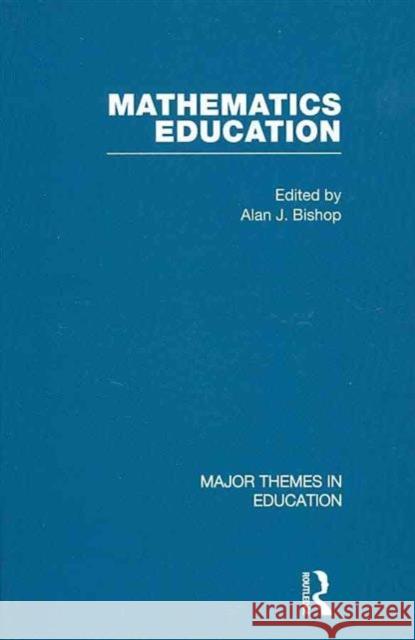Mathematics Education » książka
Mathematics Education
ISBN-13: 9780415438742 / Angielski / Twarda / 2009 / 1776 str.
A new title in the Routledge series, Major Themes in Education, this Major Work is a four-volume collection of cutting-edge and foundational research about mathematics education.
Mathematics education is one of the most publicized and contested fields of endeavour in the area of education more generally. The entrails of international comparative mathematics achievement surveys are pored over by the media, politicians and educators alike; and, while for the last fifty years at least it has been assumed by most everyone in modern societies that mathematics should be a compulsory subject in all schools, parents and scholars alike argue furiously about whether traditional teaching and rote practising of mathematical skills is better or worse for pupils than conceptual teaching based on children’s own constructed ideas. University mathematics professors tend either to deplore the dropping of standards in their students, and thus the dropping of standards in teachers, or heartily embrace the new learning techniques made possible through careful use of the new technologies.
As academic thinking about and around mathematics education continues to flourish and develop, this new title in the Routledge series, Major Themes in Education, meets the need for an authoritative reference work to make sense of the subject’s vast literature and the continuing explosion in research output. Edited by Alan Bishop, a prominent scholar in the field, this Routledge Major Work is a four-volume collection of foundational and cutting-edge contributions that cover all of the major themes in mathematics education.
The first of the four volumes (‘Mathematics, Mathematics Education, and the Curriculum’) brings together key work on the goals of mathematics education, as well as vital material on the relationship of the curriculum with numeracy, assessment, technology, and the place of marginalized students. The second volume (‘Mathematics Teaching and Teachers’) gathers the most important thinking on topics such as pedagogical practices; mathematics teachers’ beliefs, attitudes, and values; professional development; teacher education; and teachers as researchers. The third volume covers the central theories of ‘Mathematics Learning and Learners’. The final volume in the collection (‘The Contexts of Mathematics Education’) gathers vital material from the rich body of literature that explores the social, cultural and political contexts in which mathematics education sits.
With comprehensive introductions to each volume, newly written by the editor, which place the collected material in its historical and intellectual context, this Routledge Major Work is an essential work of reference. It is destined to be valued by specialists in mathematics education and scholars working in related areas—as well as by educational policy-makers and professionals—as a vital one-stop research tool.











